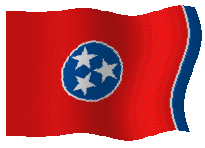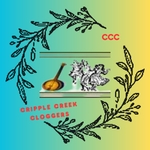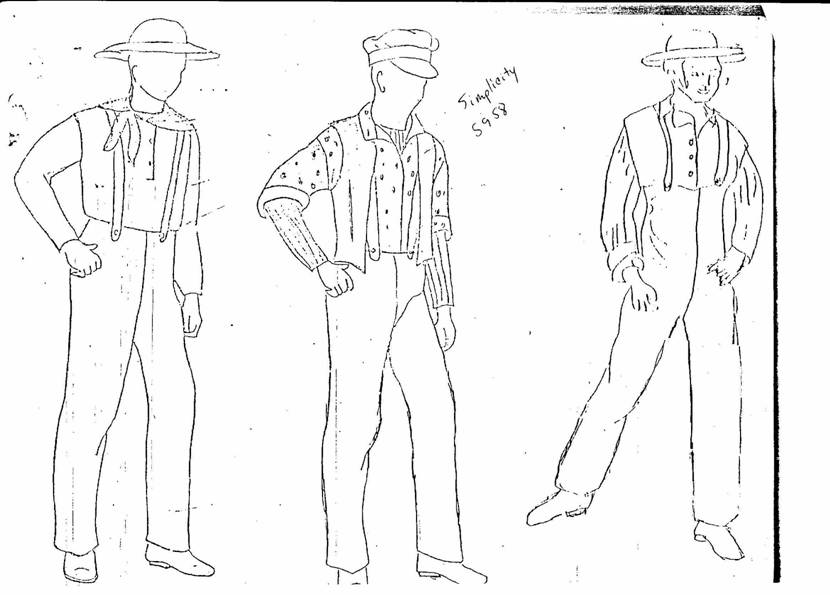There Are Three Variations of The Outfit to Be Used |
|
Shirt – You will need one bright solid color and one of calico or print. (Get the fabric approved by Steve Cates before making or buying. Bring a small piece for inspection). Use a polyester-cotton blend for best service. The style is long-sleeved, full gathers at the armholes and cuffs and with a larger collar. Use Simplicity 5958 Size A* pattern for the shirt or select a similar-type pattern based on these directions. Make the solid color shirt first; it is usually worn when the girls wear patchwork dresses. Put a loop about two inches long and one-half inch wide at the shoulder to hold the suspenders in place. Pants – Pants are solid or a very small plaid/check. They are full length in legs and come about two inches above the natural waistline. Colors to be used for pants include grey, brown, tan, olive green, or various small checks/plaids in these colors. Pants should have no zippers or pockets. You may include an inside (hidden) button-up or Velcro-up pocket (just inside the front where the suspenders attach) for carrying money, keys, etc. The suspenders should be the same fabric as the trousers. They should be sewn on in the back and buttoned on in the front. Either cross them in the back or put a bar across the center back to hold them on the shoulders. Buttons to hold the suspenders in front should be large ones (1” – 1 1/2“ in diameter) and bright-colored to contrast with the outfit. Vests – Vests should be solid colors and reversible. They can be black or brown with a tan or grey lining. Undershirt – The long underwear (“long johns”) top should be red. A white one may be dyed if necessary. Kerchief – You need one red and one black one (made of poly-cotton blend fabric). Cut a 28” square and shirt-tail hem each side. Hat – The hat may be straw or Amish-style. (See the drawings attached). Socks – Over-the-calf black. The costume should be made to be used in as many variances as possible—-vest to reverse—- * This pattern is good for the neck and collar. The person making the shirt will have to make the long [Note: Contains all sizes, x small to x large]. Winter 2003 catalogue, page 1008. |
|
Fabric Must Be Approved by Director Before Buying or Making |


